Echo 130: Celebrating the magic moments that thrilled Cork sports fans

Cork City's John O'Flynn celebrates his goal against Derry City to win the league in 2005. Picture: Eddie O'Hare
As they pushed forward, City caught them on the break, with O’Donovan playing in Behan on the right and his pull-back was perfect for Kearney to slot home the second, clinching goal. At the other end, Devine was never going to be beaten.

Munster 33 Gloucester 6
THE of Monday, January 20, 2003 had a wraparound cover, featuring pictures of the four tries scored by Munster against Gloucester the previous Saturday.
‘Munster: Our finest hour’ proclaimed the headline, with the image of Mick O’Driscoll being congratulated by Jeremy Staunton in front a raucous crowd after the third try taking pride of place.
Munster have developed a reputation for doing things the hard way, with the most famous wins often coming when their backs have been to the wall. Instead, the final fixture has often taken the appearance of a do-or-die clash, with Munster more often than not pulling the goods out of the bag when a heroic effort is needed most.
In 2002-03, an opening loss to Gloucester at Kingsholm was a setback, but victories over Perpignan and Viadana twice had them back on track before another defeat, away to the French side.
The vagaries of the system whereby the six pool winners and two best runners-up qualify for the knockout stages meant that, in order to make it through, Munster had to win their final game at home to the English team by 27 points or more, getting a bonus point for four tries in the process.
What followed did a lot to cement Munster’s reputation, and the tagging of the game as ‘the miracle match’ does not do it justice, simply for the sheer manner in which qualification was achieved.
The driver managed to that vital information on to the Munster camp, saying a few days later, “If it was money he’d have got it back, but this was too important.”

With the wheels in motion, the game itself on the Saturday was an occasion that would long be ed. From the start, the atmosphere at Thomond Park was special.
However, Munster were finding the going tough in the early stages, Gloucester defending well across the field, and after 12 minutes it was 3-3.
Then, a breakthrough as Peter Stringer exposed Gloucester on the short side of the scrum and played John Kelly in for the first try. Neither Kelly, nor anyone else present, knew it at the time, but the wing was to have an even bigger part to play later on as the drama reached fever pitch.
As half-time approached, the home side snaffled another try when Jason Holland’s grubber kick was latched onto by Mossie Lawlor, and as the sides retired at the break it was 16-6. With Munster needing tries, Gloucester began to concede penalties freely, but points were necessary for Munster too, and 12 minutes into the second half Ronan O’Gara kicked a penalty to make it 19-6.
The identity of the winners was almost assured, now the only question was how big the margin would be. It was increased again when Mick O’Driscoll scored the third try, benefiting from a beautiful floated by Holland, and now everybody was on the edge of their seat. However, despite all of the pressure being exerted, the chance of a Gloucester breakaway, which would unravel all the good work was real, and a score of any kind for them would put a huge dent in Munster’s hopes.
In that light, Ludovic Mercier’s decision to run a penalty rather than take three points seemed ill-thought out, but that didn’t matter to Munster. With the game in its final minute of normal time, they worked the ball down the field again, knowing that they had to create one last chance. From a lineout, O’Driscoll rose highest to palm the ball back onto his side, and a drive pushed Gloucester back almost as far as the line.
Jeremy Staunton tried for an opening but was stopped, however Stringer was in quick to feed Holland, and when he moved the ball wide to Kelly, he made no mistake.
Job done, it seemed, all that remained was for Ronan O’Gara to pop over the conversion to make the score 33-6, a 27-point difference. It was by no means an easy kick, but O’Gara, like he had so often done for Munster and Ireland, kept his head to send the ball between the posts. Cue pandemonium.
IT'S not an exact science, but a handy rule of thumb is that the greats are known by just one name.
If it happens to be that that’s the case among your own but not across a wider area, there’s no shame in that; but if a single moniker is a national identifier, then you are certainly in the stratosphere. So it is with Sonia, and don’t even pretend that you need to be told a surname.
In 1992, she set six national records between the 800m and 5,000m, including five in the space of 11 days in August of that year. Part of such a burst was probably fuelled by disappointment at a fourth-placed finish in the 3,000m at the Olympics, but time was on her side.
There was a real sense that she was building towards the Atlanta Games with silver in the 1,500m at the 1993 World Championships, gold in the 3,000m at the 1994 European Championships and then gold in the 5,000m at the worlds in 1995.
While the 3,000m had been taken off the Olympic roster, she was in good form in both the 1,500m and 5,000m in 1996 and the scheduling looked kind to allow a real tilt at both. The heats went to plan in the 5,000m but a stomach upset led to her failing to finish and she was still below her best as she didn’t make the 1,500m final.
Such a blow could have been fatal, but it only improved her resolve. In 1998, she entered the short- and long-course events at the World Cross-Country Championships in Marrakesh and won both. When the 1,500m and 5,000m were scheduled for the same day in that year’s European Championships, she traded up to the 10,000m and won that along with the 5,000m.
The birth of her daughter Ciara kept her sidelined for much of 1999, but she was back training within a fortnight, ready to target the 2000 Olympics in Sydney.

There, she would finally win the medal she so richly deserved, Ireland’s first in track and field since John Treacy in 1984. In September of that year, she was narrowly pipped by Romania’s Gabriela Szabo as she took silver, setting a new national record in the 5,000m at the age of 30, one which still stands. A month later, she made her marathon debut, winning in Dublin.
An Olympic medal didn’t mean a swansong, either, as she continued to compete, winning silver in the 5,000m and 10,000 and the 2002 worlds and she took part in her fourth Olympics in 2004 in Athens. While she finished last in the 5,000m as she suffered from illness, the ovation from the crowd summed up the regard in which she was held, both at home and abroad.
While it is more than a decade since she has seriously competed, she still holds seven Irish records. They may be beaten in time, but the bronze statue of her erected in her native Cobh in 2015 ensures that she and her achievements will never be forgotten.
November 28, 1969
Ballymore-Cobh
5,000m silver at 2000 Olympics; 5,000m gold at 1995 World Championships; 1,500m silver at 1993 European Championships; 3,000m gold at 1994 European Championships; 5,000m and 10,000m gold at 1998 European Championships; 5,000m and 10,000m at 2002 European Championships; 4km and 8km golds at 1998 World Cross-Country Championships; 3,000m silver at 1997 World Indoor Championships; 3,000m gold and 1,5000m silver at 1991 Universiade; current national records in 1,500m, mile, 2,000m, 3,000m, two miles, 5,000m and 10,000m.
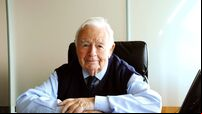

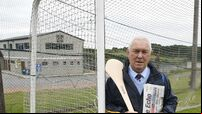

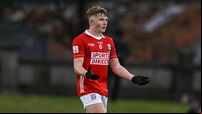
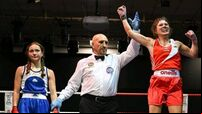
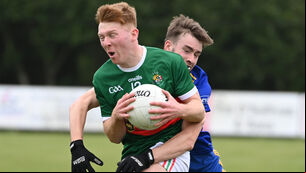



 App?
App?







